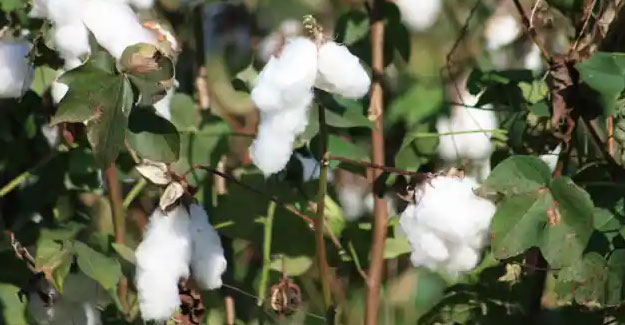
Punjab Fails To Frame Policy For Organic Cotton Cultivation
Farm experts say cotton crop is considered the largest consumer of pesticides and insecticides and Punjab can reduce its chemical load with a dedicated policy on organic farming Punjab agriculture minister Randeep Singh Nabha admits that the state needs to think and explore ways to promote organic cultivation of cotton. Punjab agriculture minister Randeep Singh Nabha admits that the state needs to think and explore ways to promote organic cultivation of cotton. Punjab lacks a policy to promote organic cotton cultivation even as farmers associated voluntarily with it see viability of chemical-free production of the cash crop. Farm experts say cotton crop is considered the largest consumer of pesticides and insecticides and Punjab can reduce its chemical load with a dedicated policy on organic farming. Since the chemical-free fields have lesser irrigation requirements, organic farming of cotton can pay dividends in the long term, they say. Jaitu-based Kheti Virasat Mission (KVM), an accredited agency to provide certification to organic growers, has roped in 55 farmers from various districts to opt for organic cultivation of cotton. “Since 2019, we have brought about 100 acres, against Punjab’s 3.25 lakh hectare area this kharif season, under organic cotton. Biggest challenge in organic farming is that a farmer has to keep his field free from any chemical use for three years. The government should frame a policy to grant financial incentive to such farmers for three years,” said KVM executive director Umendra Dutt. He said organic farming is the key for Punjab to reduce pesticide footprint in the agriculture sector. Groundwater table has been depleting due to injudicious extraction of the natural resource and chemical-free farming is needed to meet futuristic needs. Punjab agriculture minister Randeep Singh Nabha admits that the state needs to think and explore ways to promote organic cultivation of cotton. “Cotton is a traditional cash crop in districts of the Malwa belt. Since 2015, it has faced two major pest attacks that crashed the rural economy. We should study models of other states in this direction,” he added. A progressive farmer from Fazilka district’s Katehra, Vinod Jyani, says coordinated efforts can help farmers get handsome returns from the vast market of organic fabric. He has sown conventional seeds on a 17-acre land in his native village. Bt cotton seed field can produce an average of 10 quintals of cotton from an acre whereas Jyani is expecting 8 quintals from certified traditional seeds. “A Ludhiana-based textile company has offered to pay 15% above the highest open market rate of raw cotton that is already touching about Rs 7,700 per quintal. Loss in yield can be compensated with higher prices for genuine organic produce,” he said.
Textile Excellence
If you wish to Subscribe to Textile Excellence Print Edition, kindly fill in the below form and we shall get back to you with details.













